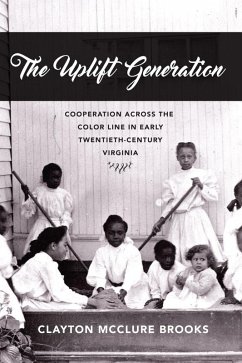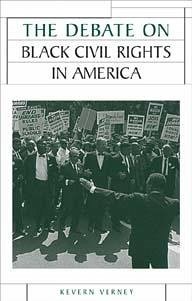
A Girl Stands at the Door (eBook, ePUB)
The Generation of Young Women Who Desegregated America's Schools

PAYBACK Punkte
0 °P sammeln!
A new history of school desegregation in America, revealing how girls and women led the fight for interracial education The struggle to desegregate America's schools was a grassroots movement, and young women were its vanguard. In the late 1940s, parents began to file desegregation lawsuits with their daughters, forcing Thurgood Marshall and other civil rights lawyers to take up the issue and bring it to the Supreme Court. After the Brown v. Board of Education ruling, girls far outnumbered boys in volunteering to desegregate formerly all-white schools. In A Girl Stands at the Door, historian R...
A new history of school desegregation in America, revealing how girls and women led the fight for interracial education
The struggle to desegregate America's schools was a grassroots movement, and young women were its vanguard. In the late 1940s, parents began to file desegregation lawsuits with their daughters, forcing Thurgood Marshall and other civil rights lawyers to take up the issue and bring it to the Supreme Court. After the Brown v. Board of Education ruling, girls far outnumbered boys in volunteering to desegregate formerly all-white schools.
In A Girl Stands at the Door, historian Rachel Devlin tells the remarkable stories of these desegregation pioneers. She also explains why black girls were seen, and saw themselves, as responsible for the difficult work of reaching across the color line in public schools. Highlighting the extraordinary bravery of young black women, this bold revisionist account illuminates today's ongoing struggles for equality.
The struggle to desegregate America's schools was a grassroots movement, and young women were its vanguard. In the late 1940s, parents began to file desegregation lawsuits with their daughters, forcing Thurgood Marshall and other civil rights lawyers to take up the issue and bring it to the Supreme Court. After the Brown v. Board of Education ruling, girls far outnumbered boys in volunteering to desegregate formerly all-white schools.
In A Girl Stands at the Door, historian Rachel Devlin tells the remarkable stories of these desegregation pioneers. She also explains why black girls were seen, and saw themselves, as responsible for the difficult work of reaching across the color line in public schools. Highlighting the extraordinary bravery of young black women, this bold revisionist account illuminates today's ongoing struggles for equality.
Dieser Download kann aus rechtlichen Gründen nur mit Rechnungsadresse in A, B, BG, CY, CZ, D, DK, EW, E, FIN, F, GR, HR, H, IRL, I, LT, L, LR, M, NL, PL, P, R, S, SLO, SK ausgeliefert werden.













